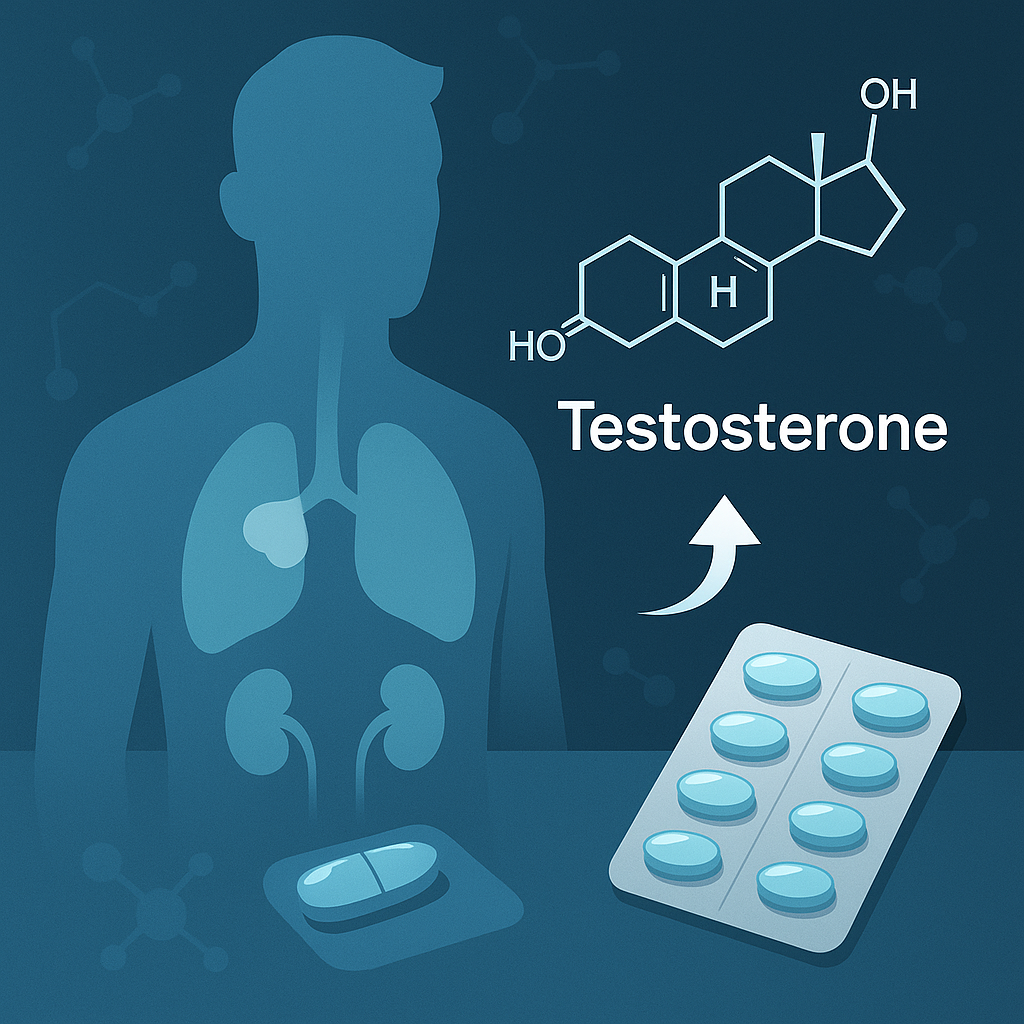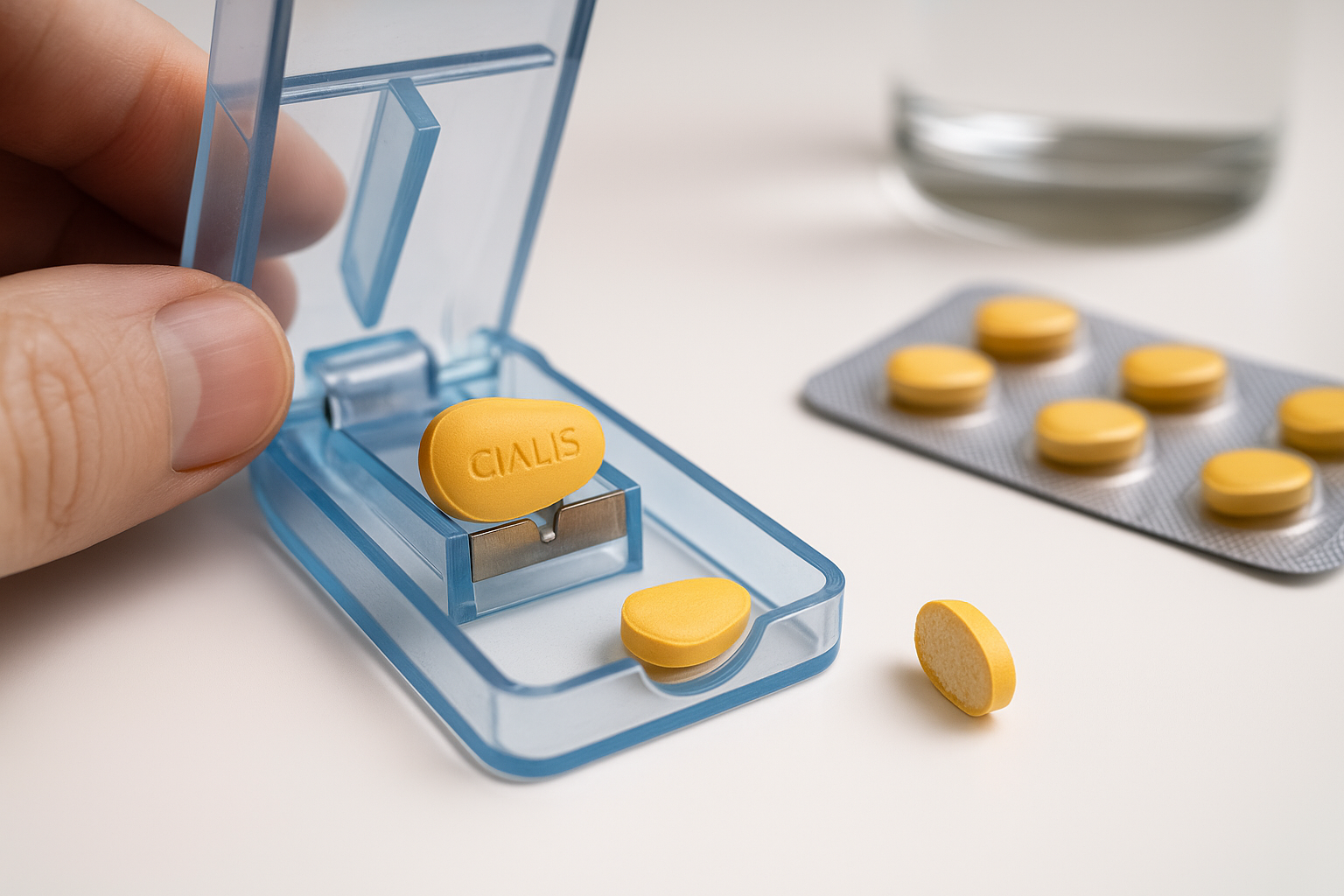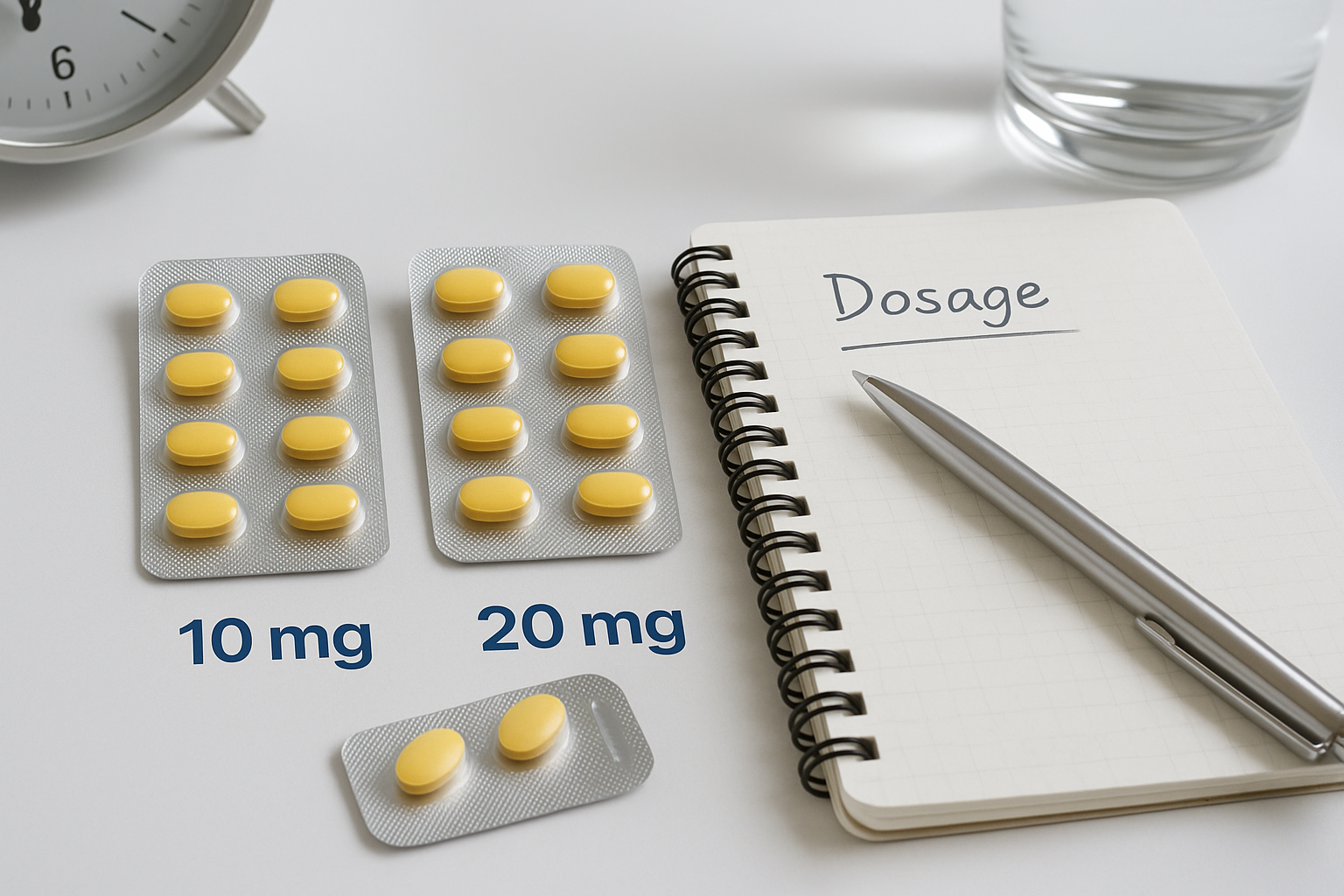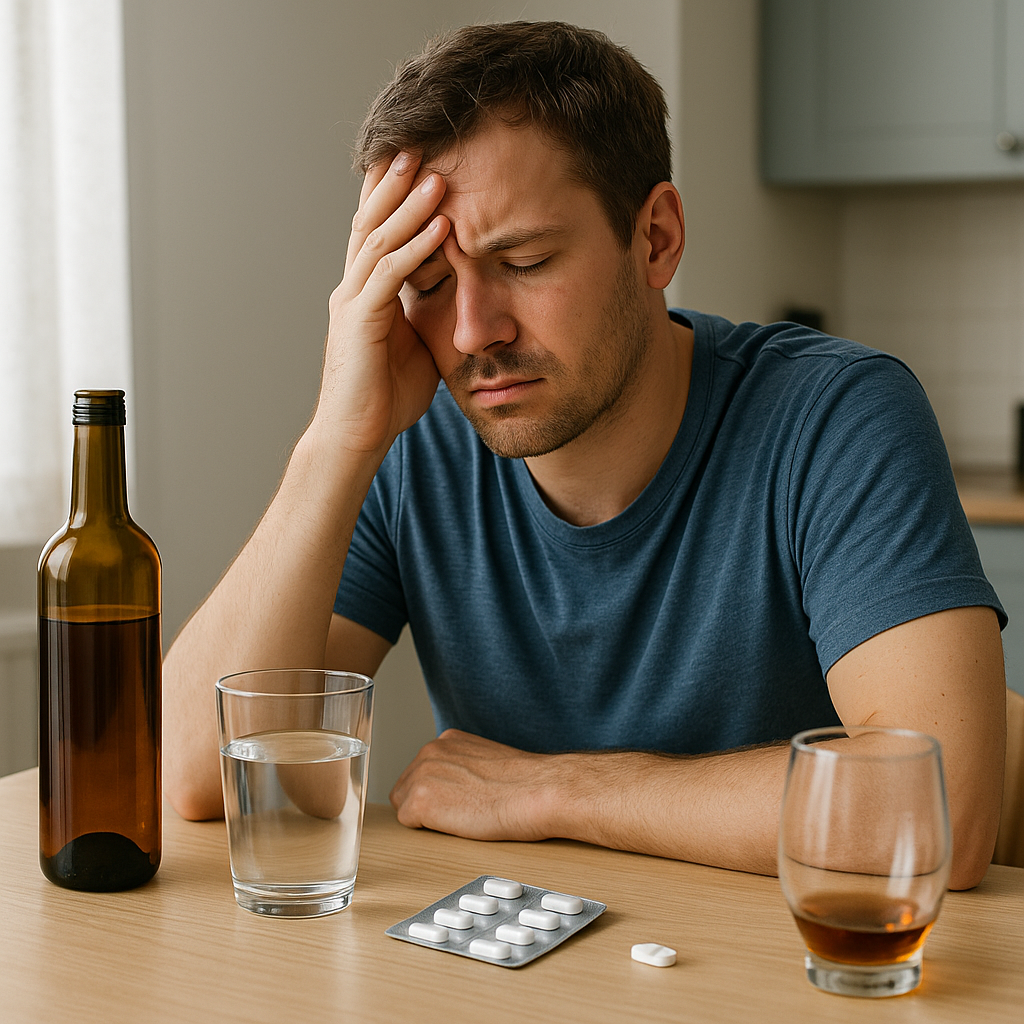Cialis (tadalafil) is well known for helping men with erectile dysfunction, but over the past few years, an interesting question has been circulating:
Does Cialis affect testosterone levels?
Can it help raise low T — or even act like a hormone booster?
The connection between Cialis and testosterone is more real than you might expect. But it’s not as simple as “take a pill, raise your T.”
🧠 How Testosterone and Erections Are Linked
Testosterone supports libido, energy, mood, and sexual performance. While low T doesn’t always cause ED, it can reduce sex drive and make erections weaker.
Cialis doesn’t replace testosterone, but it can help restore function and improve confidence — even if your T is slightly low.
💊 So, Does Cialis Boost Testosterone?
Some research suggests that daily low-dose tadalafil may increase testosterone levels slightly. The reasons might include:
- More frequent sexual activity = natural hormone boost
- Better sleep = improved T production
- Less inflammation = better hormone balance
- Improved testicular blood flow
🔬 What the Studies Say
Several studies — including a 2017 meta-analysis — found small but measurable increases in testosterone in men taking tadalafil daily. Some urologists now include it in care plans for mild low-T symptoms.
Important: These changes are usually modest and may not replace testosterone therapy in men with very low levels.
⚠️ What to Know Before Trying It
Cialis may help if you:
- Have mild to moderate erectile dysfunction
- Have borderline testosterone levels
- Want to avoid or delay full testosterone therapy
- Are looking for improved performance and energy
It’s still a prescription drug, so talk to your doctor before starting. Be aware of possible side effects like headache, flushing, or changes in blood pressure.
🧾 Final Thought
Cialis isn’t a testosterone booster — but it might help your body support healthy levels naturally. For men with mild hormone imbalances and performance issues, it could be part of a bigger solution.
As always, work with your doctor to figure out what’s best for your body and your goals.
Cialis (tadalafil) is well known for helping men with erectile dysfunction, but over the past few years, an interesting question has been circulating:
Does Cialis affect testosterone levels?
Can it help raise low T — or even act like a hormone booster?
The connection between Cialis and testosterone is more real than you might expect. But it’s not as simple as “take a pill, raise your T.”
🧠 How Testosterone and Erections Are Linked
Testosterone supports libido, energy, mood, and sexual performance. While low T doesn’t always cause ED, it can reduce sex drive and make erections weaker.
Cialis doesn’t replace testosterone, but it can help restore function and improve confidence — even if your T is slightly low.
💊 So, Does Cialis Boost Testosterone?
Some research suggests that daily low-dose tadalafil may increase testosterone levels slightly. The reasons might include:
- More frequent sexual activity = natural hormone boost
- Better sleep = improved T production
- Less inflammation = better hormone balance
- Improved testicular blood flow
🔬 What the Studies Say
Several studies — including a 2017 meta-analysis — found small but measurable increases in testosterone in men taking tadalafil daily. Some urologists now include it in care plans for mild low-T symptoms.
Important: These changes are usually modest and may not replace testosterone therapy in men with very low levels.
⚠️ What to Know Before Trying It
Cialis may help if you:
- Have mild to moderate erectile dysfunction
- Have borderline testosterone levels
- Want to avoid or delay full testosterone therapy
- Are looking for improved performance and energy
It’s still a prescription drug, so talk to your doctor before starting. Be aware of possible side effects like headache, flushing, or changes in blood pressure.
🧾 Final Thought
Cialis isn’t a testosterone booster — but it might help your body support healthy levels naturally. For men with mild hormone imbalances and performance issues, it could be part of a bigger solution.
As always, work with your doctor to figure out what’s best for your body and your goals.






